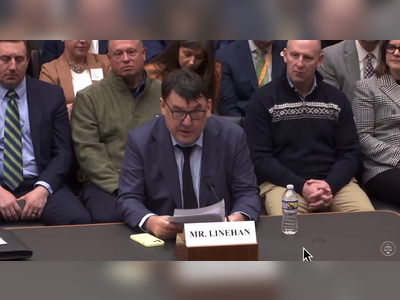Rise in Dengue and Other Mosquito-Borne Diseases in Europe Due to Climate Change
Cases of dengue and other mosquito-borne diseases are rising significantly in Europe due to climate change, according to the ECDC. In 2023, the EU and surrounding regions saw 130 locally acquired dengue cases, up from 71 in 2022, while imported cases surged to 4,900. The spread of disease-carrying mosquitoes like Aedes albopictus and Aedes aegypti has expanded, highlighting the need for coordinated control measures.
The European Centre for Disease Prevention and Control (ECDC) has reported a significant rise in cases of dengue and other mosquito-borne diseases across Europe, linked to climate change.
In 2023, the region encompassing the European Union plus Iceland, Liechtenstein, and Norway saw 130 locally acquired dengue cases, compared to just 71 in 2022.
This marks a stark increase from the 73 cases reported in the entire 2010-2021 period.
Imported dengue cases also surged to 4,900 in 2023 from 1,572 in 2022, the highest since monitoring began in 2008.
The spread of the Aedes albopictus mosquito, which transmits dengue, chikungunya, and Zika viruses, has expanded to 13 EU/EEA countries.
The Aedes aegypti species, spreading similar diseases, has established itself in Cyprus and several outermost EU regions.
ECDC director Andrea Ammon emphasized the link between climate change and the expansion of invasive mosquitoes, noting the role of higher summer temperatures and milder winters.
The report also highlighted a drop in West Nile virus cases from 1,133 in 2022 to 713 in 2023, but an increase in affected regions.
Coordinated measures, such as deploying insecticidal nets and removing stagnant water, are crucial for combating these diseases.
In 2023, the region encompassing the European Union plus Iceland, Liechtenstein, and Norway saw 130 locally acquired dengue cases, compared to just 71 in 2022.
This marks a stark increase from the 73 cases reported in the entire 2010-2021 period.
Imported dengue cases also surged to 4,900 in 2023 from 1,572 in 2022, the highest since monitoring began in 2008.
The spread of the Aedes albopictus mosquito, which transmits dengue, chikungunya, and Zika viruses, has expanded to 13 EU/EEA countries.
The Aedes aegypti species, spreading similar diseases, has established itself in Cyprus and several outermost EU regions.
ECDC director Andrea Ammon emphasized the link between climate change and the expansion of invasive mosquitoes, noting the role of higher summer temperatures and milder winters.
The report also highlighted a drop in West Nile virus cases from 1,133 in 2022 to 713 in 2023, but an increase in affected regions.
Coordinated measures, such as deploying insecticidal nets and removing stagnant water, are crucial for combating these diseases.
Translation:
Translated by AI
AI Disclaimer: An advanced artificial intelligence (AI) system generated the content of this page on its own. This innovative technology conducts extensive research from a variety of reliable sources, performs rigorous fact-checking and verification, cleans up and balances biased or manipulated content, and presents a minimal factual summary that is just enough yet essential for you to function as an informed and educated citizen. Please keep in mind, however, that this system is an evolving technology, and as a result, the article may contain accidental inaccuracies or errors. We urge you to help us improve our site by reporting any inaccuracies you find using the "Contact Us" link at the bottom of this page. Your helpful feedback helps us improve our system and deliver more precise content. When you find an article of interest here, please look for the full and extensive coverage of this topic in traditional news sources, as they are written by professional journalists that we try to support, not replace. We appreciate your understanding and assistance.











